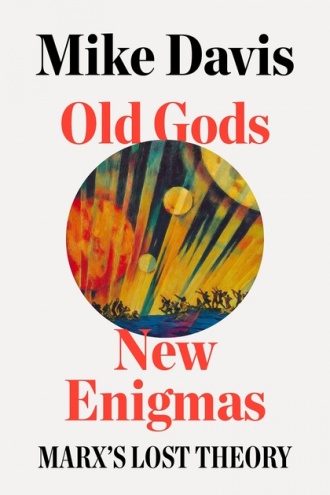This is the last article you can read this month
You can read more article this month
You can read more articles this month
Sorry your limit is up for this month
Reset on:
Please help support the Morning Star by subscribing here
Old Gods, New Enigmas: Marx’s Lost Theory
by Mike Davis
(Verso, £17.99)
MIKE DAVIS started life working as a meat cutter and bus driver in California before he made his name as an urban sociologist with the groundbreaking Planet of Slums, a work that single-handedly changed the way we see our planet.

To mark the 200th anniversary of Karl Marx’s birth, he explores in Old Gods, New Enigmas the historic rise of the working class and the socialist movement in Europe at the time of the great revolutionary philosopher’s emergent body of ideas.
Because Marx’s greatest work was Capital, its focus was to a greater extent on the capitalist. Davis, instead, focuses on labour and its emergence as a self-conscious historical force. In a mere 150 pages, he magisterially takes us through the component elements of this development in a series of mini chapters.
These include the revolt against workplace despotism and sexual abuse, along with the role of war in radicalising workers in the fight against conscription — not something Marx addressed in the pre-imperialist era.
Davis tries to fill that gap he identifies in Marx in defining what constitutes the revolutionary agency of the working class. In good historical materialist fashion he does this not through abstraction but by surveying the emergence of the workers’ movement from the 1830s through to the European revolutions of 1917-21.
Yet it's somewhat disappointing and puzzling, that having taken us through to the end of the high point of revolution in Europe, its hard-won victory in Russia and defeat elsewhere, he ends there.
Instead of pursuing his thesis by looking at the periods that followed, the final two essays in the book are on two largely unrelated topics.
The first is on the role of nationalism in relation to class struggle and class consciousness. The second looks at the theory of desertification championed by Russian anarchist and scientist Peter Kropotkin in relation to the modern climate crisis. This final essay feels slightly dated as it was evidently written during the first Obama presidency and doesn't include the latest developments in the politics and technology of energy.
After the dense theory and history-packed first section, this reader was left wanting to know what happened to this great movement which, in its belief that a new world was imminent, feels distant from our own.
The huge question of how that revolutionary agency can be resurrected into a political force against capital today — rather than diverted into nationalism and hate — is left for a future work.










